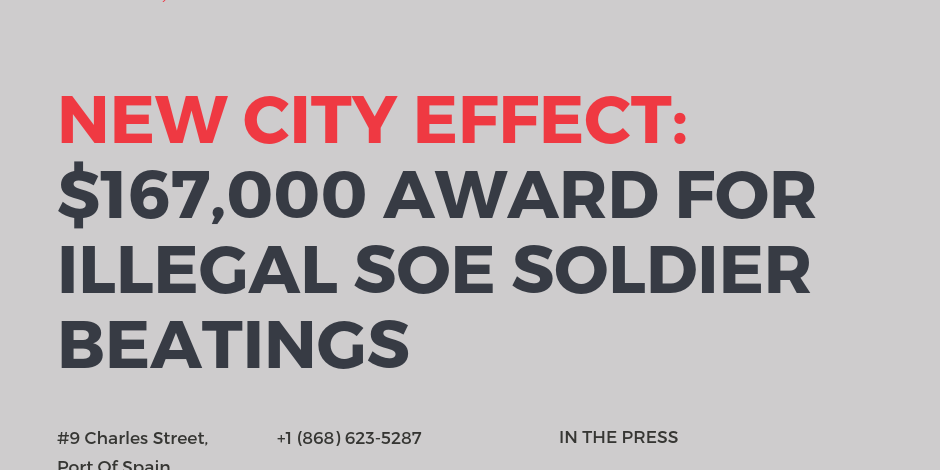The following article was first published in the Trinidad And Tobago Guardian Newspaper on Friday 3rd May, 2019.
The State has been ordered to pay a little over $167,000 in compensation to a man who began suffering from post-traumatic stress disorder (PTSD) after being beaten by a group of soldiers and Coast Guard officers during the 2011 State of Emergency.
In a 47-page judgement delivered, earlier this week, High Court Judge Margaret Mohammed upheld a lawsuit, in which Calvin LaVende claimed that he was falsely imprisoned and assaulted by the servicemen for five hours on September 1, 2011.
According to the claim, a day before the incident, LaVende was staying with friends at a house on Gasparee Island when a team of officers came to the property to search it for illegal guns and ammunition.
They found nothing illegal and left.
When they returned the following day, the officers began beating LaVende and his friends as they again questioned them over illegal items.
They were beaten with a gun and a piece of metal before being forced to walk into the sea. They were then taken to the Coast Guard’s Staubles Bay base, in Chaguaramas before being taken for medical treatment.
In the lawsuit, Mohammed was asked to consider whether the search fell under the Emergency Powers Regulations, which gave members of the protective services additional powers.
Under the regulations, police officers were entitled to search citizens’ properties without a warrant and granted members of Defence Force similar powers of arrest as police officers.
In her judgement, Mohammed ruled that there was no evidence that the Defence Force officers were acting in support of the T&T Police Service or under the instructions of the Police Commissioner as required under the regulations.
Mohammed also ruled that LaVende’s version of the events was more credible than the servicemen’s.
“The claimant’s evidence in chief and cross-examination was in a large part consistent with his case in terms of where, the sequence the extent, and the manner of the assault and battery,” Mohammed said.
She also noted that LaVende’s medical reports buttressed his case as it did not support the servicemen’s position that he resisted them and their attack on him was proportionate.
“I do not accept that the claimant’s evidence was an embellishment of his injuries as described in the hospital report since it must be taken in the context that after the claimant was beaten he was made to walk out and stand in the sea up to his neck and he was only taken to the hospital for examination after the search of the island was completed which was at least five hours after the incident,” she said.
In assessing the compensation for LaVende, Mohammed granted him $27,000 in damages for the five hours he was unlawfully detained and $120,000 in general damages for his pain and suffering.
She also ordered $20,000 in exemplary damages for the oppressive conduct by agents of the State. The State was also ordered to pay LaVende’s $35,000 legal bill for bringing the lawsuit.
LaVende was represented by Matthew Gayle and Sheriza Khan, while Kelisha Bello and Lianne Thomas represented the State.







